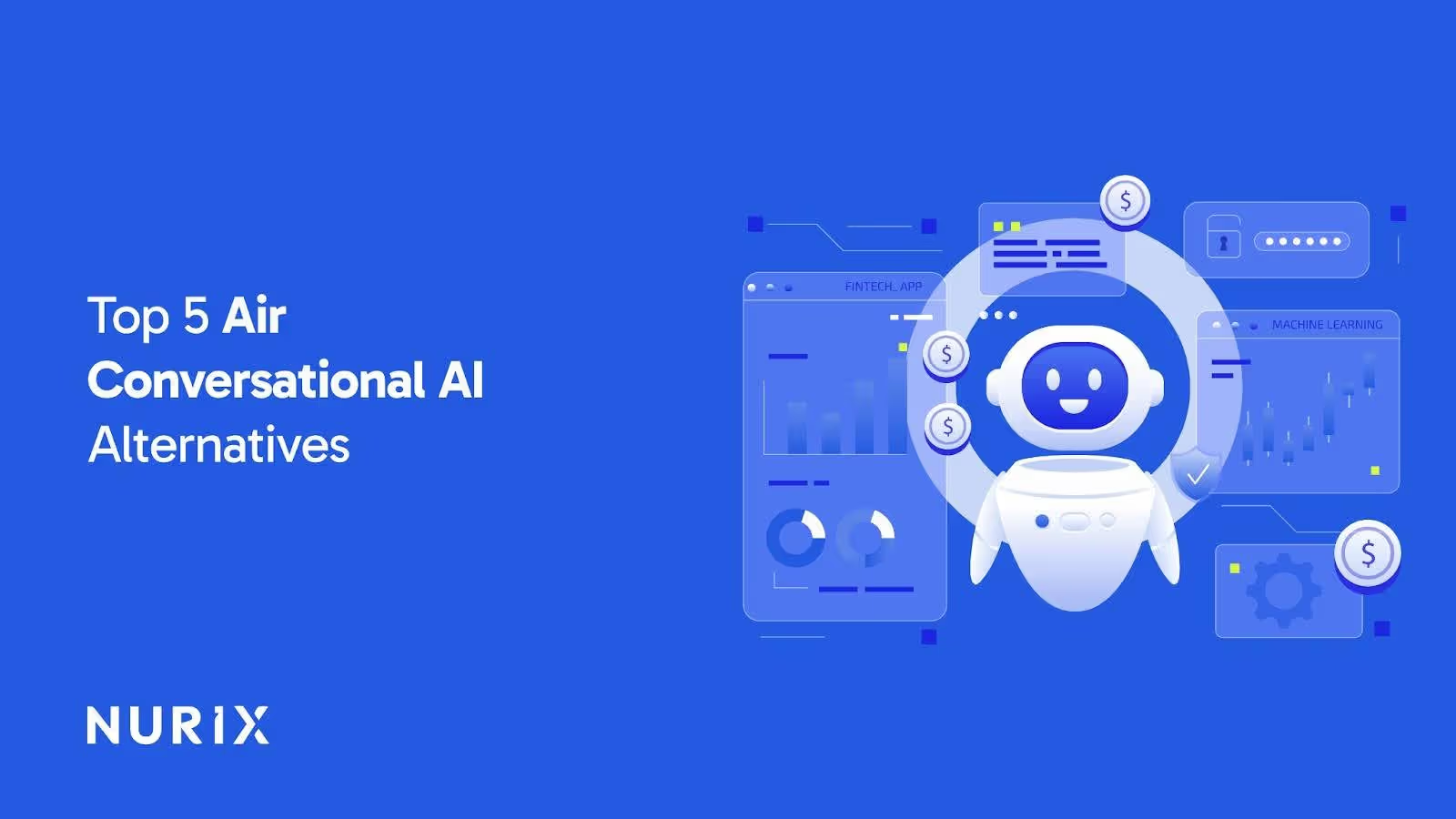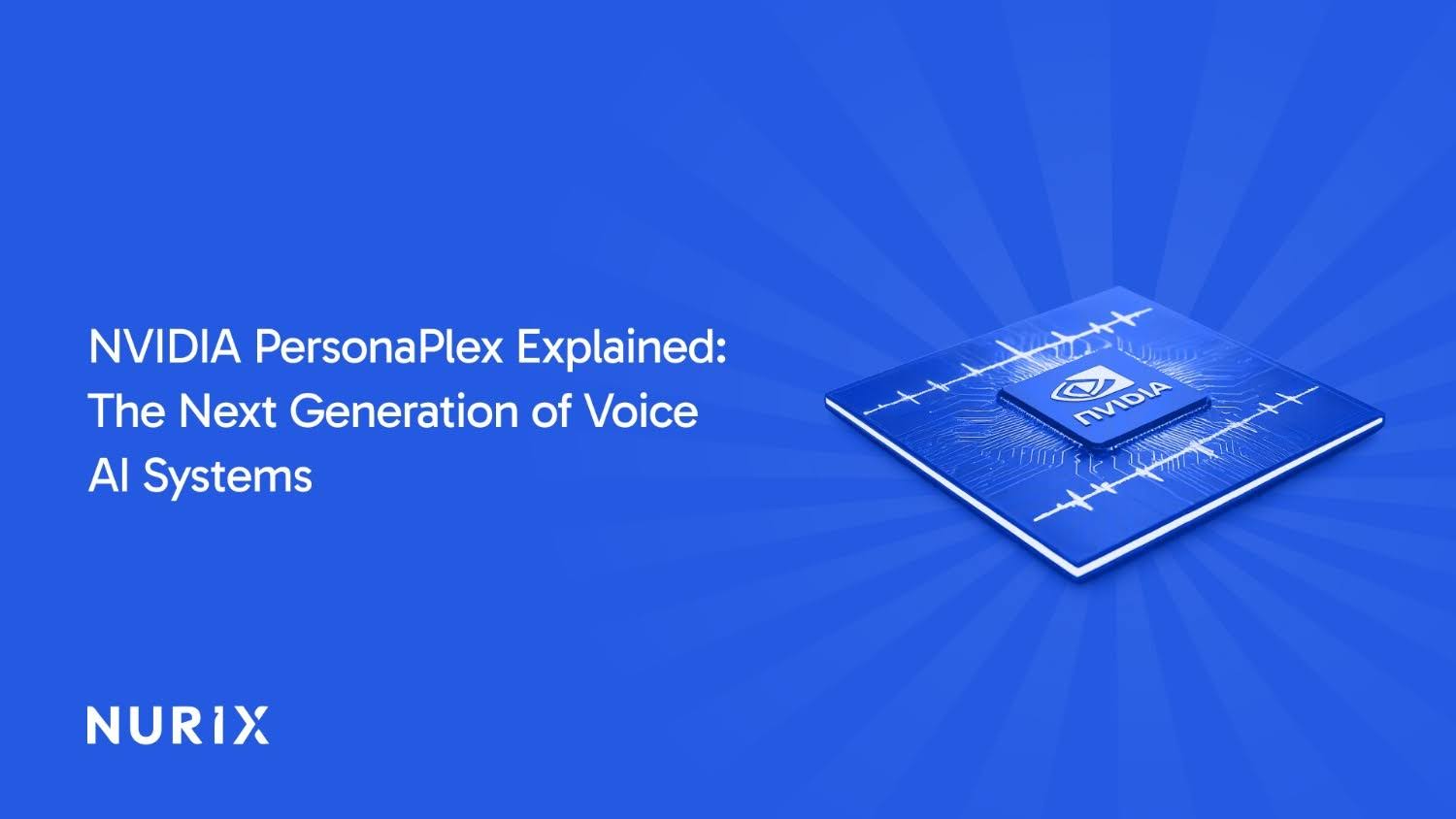Top 5 Air Conversational AI Alternatives in 2025

Finding conversational AI that fits specific business needs can be frustrating when popular platforms fall short on custom options or scale limits. Air Conversational AI serves many well, but some companies face challenges like limited flexibility or rising costs.
The conversational AI market is set to hit $24.84 billion by 2029, growing 24.7% annually, showing how critical it is to find the right solution. Choosing an alternative means weighing features that match real-world demands, not just picking the biggest name.
In this guide, discover the top 5 Air Conversational AI alternatives in 2025 that offer practical advantages for businesses aiming to improve customer engagement and operational support without compromise.
Key Takeaways
- Conversational AI is Business-Critical Technology: Conversational AI automates workflows, delivers personalized responses, and scales omnichannel interactions, driving customer satisfaction and operational efficiency for businesses across industries by 2025.
- Businesses Prioritize Compliance and Security: Top conversational AI platforms provide GDPR, HIPAA, and SOC 2 compliance, maintaining data security, privacy, and human oversight to meet strict regulatory and customer trust requirements.
- Scalability and Customization Drive Adoption: Scalable conversational AI supports thousands of real-time interactions, multiple languages, voice and text channels, and deep integration for brand-consistent, culturally aware, personalized customer engagement.
- Cost and Support Influence Platform Choice: Cost-effective alternatives to Air AI offer transparent pricing, flexible billing, proactive support, and customization options, making them ideal for startups and smaller enterprises needing customized conversational solutions.
What is Conversational AI?
Conversational AI encompasses tools allowing machines to conduct fluid, contextually aware, human-like conversations using natural language processing, speech recognition, and machine learning technologies.
What do today’s businesses look for in a Conversational AI?
Here are the key qualities that matter most in these digital conversational partners today:
- Language and Personalization: Delivers accurate, context-driven responses that reflect brand voice, accommodate slang and industry-specific terms, and maintain regulatory compliance.
- Scalability and Channel Coverage: Handles high query volumes smoothly, integrates across CRMs and messaging apps, and supports both text and voice channels.
- Security and Privacy: Meets stringent encryption norms, supports regulatory mandates like HIPAA or GDPR, and allows precise permissions for team access.
- Continuous Improvement: Uses real-world feedback and supervised learning to adapt response quality and reduce repeat errors over time.
- Data-Driven Analytics: Provides customized reporting customized to business KPIs such as customer sentiment, contact resolution, and operational performance.
- Cost and Operational Efficiency: Reduces manual workloads, allows smooth human escalation, and offers quick setup through low-code tools for broad internal adoption.
Why Look for Air Conversational AI Alternatives?
Air Conversational AI is known for its advanced capabilities geared toward large-scale operations, often favoring enterprises with heavy usage demands and complex needs. While it delivers strong performance, some may find better alignment with alternatives depending on budget, support expectations, or specific business requirements.
Here’s a closer look at why exploring other options might make sense.
- Cost Structure Suits Certain Businesses: High licensing and usage fees help Air AI serve larger enterprises, while flexible pricing from others fits leaner teams and smaller organizations.
- Planning and Billing Preferences: Some teams prefer predictable, transparent billing models to manage budgets better, while Air AI prioritizes scale and advanced features for high-volume environments.
- Evolving Conversation Quality: Air AI uses advanced AI models for natural, adaptable interactions; alternatives sometimes prioritise continuous improvement for especially complex support.
- Support Satisfaction Levels Vary: User satisfaction with technical support varies; organizations prioritizing quick, proactive help might consider providers with high-rated support channels.
- Fit for Specific Use Cases: Certain businesses may want highly customizable workflows or quick integration, which can vary between platforms, including Air AI and Nurix AI.
Top 5 Air Conversational AI Alternatives in 2025
Air conversational AI faces increasing competition from platforms offering better pricing models, improved features, and advanced customer support. These alternatives provide businesses with cost-effective solutions for automated voice interactions and customer service automation without the hefty upfront licensing fees that Air conversational AI requires.
1. Nurix AI
Nurix AI delivers enterprise-grade voice AI through its NuPlay platform, combining advanced natural language understanding with authentic voice experiences. The platform automates over 80% of customer inquiries while reducing support costs by 65%, making it a leading choice for businesses seeking comprehensive voice automation solutions.
Key Features:
- Ultra-Low Latency Voice: NuPlay delivers sub-second response times with interruption-tolerant conversations that feel natural and responsive to customers.
- Advanced Analytics Platform: NuPulse provides real-time conversation insights, sentiment analysis, and automated QA across 100% of customer interactions.
- Deep System Integration: Smooth connections with CRM, ERP, and CCaaS platforms through pre-built integrations for workflow automation.
- Multilingual Voice Support: Native support for multiple languages, including regional Indian languages, with emotional awareness and cultural nuance.
- Brand Voice Customization: Proprietary dialogue manager allows organizations to build AI agents with personalities matching their unique brand identity.
- Enterprise-Grade Security: SOC 2, GDPR compliance with human-in-the-loop capabilities for critical decision points and rigorous pre-deployment testing.
2. Retell AI
Retell AI offers a conversational platform built specifically for enterprise phone systems with industry-leading latency under 2 seconds. The platform reduces call handling costs by up to 80% while maintaining CSAT scores of 85% or higher, making it an efficient alternative to Air conversational AI.
Key Features:
- Real-Time Function Calling: GPT-4o-powered agents execute actions like appointment scheduling, lead qualification, and database updates during live conversations.
- Custom LLM Integration: Businesses can integrate proprietary language models while benefiting from Retell's scalable infrastructure and conversation management tools.
- Omnichannel Communication: Built-in SMS and chat support allows agents to continue conversations across multiple channels with full context preservation.
3. Synthflow AI
Synthflow provides a no-code platform that allows businesses to build and deploy white-labeled voice AI agents without technical expertise. The platform has processed over 45 million calls for 1,000+ customers with HIPAA and GDPR compliance built in.
Key Features:
- No-Code Visual Builder: Drag-and-drop interface allows non-technical teams to create advanced conversation flows and deploy agents in minutes.
- White-Label Customization: Complete branding control with multiple voice agents for different clients or services under your company identity.
- 200+ Platform Integrations: Pre-built connections to Salesforce, Twilio, HubSpot, and other enterprise tools for smooth workflow automation.
4. Bland AI
Bland AI specializes in programmable voice API technology with sub-2-second latency and dynamic conversation capabilities. The platform serves businesses requiring customizable voice automation with transparent per-minute pricing starting at $0.09 per minute.
Key Features:
- Conversational Pathways: Advanced logic mapping allows businesses to create custom support flows mirroring their specific business rules and processes.
- Self-Hosted Infrastructure: End-to-end infrastructure provides 99.99% uptime with guaranteed security for sensitive customer data.
- Dynamic API Integration: Real-time webhook capabilities allow agents to interact with external databases and CRM systems during active calls.
5. IBM Watson Assistant
IBM Watson Assistant maintains its position as one of the most widely deployed conversational AI platforms for enterprise applications. The platform uses decades of AI research to provide comprehensive conversational capabilities across banking, healthcare, retail, and other industry verticals.
Key Features:
- Enterprise Scalability: Handles millions of monthly interactions with industry-grade security and compliance features for regulated industries.
- Industry-Specific Models: Pre-trained models for banking, healthcare, and retail sectors with specialized knowledge bases and compliance requirements.
- Advanced Intent Recognition: Advanced natural language processing capabilities with context awareness and multi-turn conversation management.
Pricing Comparison Table
Finding the right conversational AI means weighing different costs and capabilities to match operational needs and budgets. The variety of pricing models and features across platforms can make this a complex choice.
Here’s a detailed comparison of key conversational AI providers that highlights what each brings to the table.
Conclusion
Finding the right conversational AI isn’t about jumping on the latest technology but finding a solution that fits your business’s unique challenges. Alternatives to Air Conversational AI offer different strengths in handling growth, security, and custom needs.
Nurix AI delivers practical tools that align with your operations while staying clear to use. For organizations that need conversational AI with real-world flexibility and reliable support, Nurix AI is a solid choice.
Reach out to us to see how Nurix AI can meet your specific needs and improve your customer interactions.
Air Conversational AI sometimes restricts fine-tuning of industry-specific language or workflow adaptations, prompting users to seek alternatives with deeper custom options.
Complex CRM or multi-channel messaging integrations may be limited, leading businesses to consider platforms offering broader system compatibility.
Air Conversational AI's security may not meet the stringent compliance requirements like HIPAA for healthcare, which is critical for regulated sectors.
Many alternatives provide in-depth, customizable analytics focused on user behavior and sentiment beyond Air Conversational AI's standard reporting features.
Enterprises with heavy usage often find more scalable pricing options in alternative platforms better aligned with budget and growth needs.









